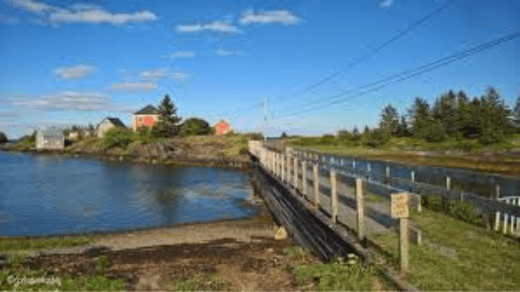
Jesse Stone, the fictional character created by author Robert B. Parker, is known for his tough demeanor and sharp investigative skills. But where exactly is Jesse Stone’s house located? Let’s delve into this mystery and uncover the possible inspiration behind his fictional residence.
1. Fictional Setting
In the Jesse Stone series of novels and films, the character resides in the fictional town of Paradise, Massachusetts, a picturesque coastal community with its fair share of crime and intrigue.
2. Inspired by Real Locations
While Paradise itself may be a creation of Parker’s imagination, it is widely believed that the setting draws inspiration from real-life towns along the coast of Massachusetts.
3. Coastal Massachusetts
Given the descriptions of Paradise in the Jesse Stone series, many fans speculate that the fictional town is loosely based on coastal Massachusetts towns such as Gloucester, Marblehead, or even Cape Cod.
4. Gloucester, Massachusetts
Gloucester, known for its scenic beauty and maritime heritage, bears similarities to the fictional Paradise, making it a likely candidate as the real-life counterpart to Jesse Stone’s stomping grounds.
5. Marblehead, Massachusetts
With its charming harbor, historic architecture, and close-knit community, Marblehead is another coastal town often mentioned in discussions about the inspiration behind Paradise.
6. Cape Cod, Massachusetts
Cape Cod’s idyllic beaches, quaint villages, and rich history make it a plausible location for Jesse Stone’s house, as it embodies the quintessential New England charm depicted in the series.
7. Small-Town Charm
Whether Paradise is modeled after Gloucester, Marblehead, Cape Cod, or a combination of these and other coastal towns, it captures the essence of small-town New England life.
8. Seaside Living
Jesse Stone’s house, situated in the heart of Paradise, likely enjoys picturesque views of the ocean, adding to the allure of coastal living depicted in the series.
9. Community Dynamics
Throughout the Jesse Stone series, the dynamics of small-town life play a central role, with residents grappling with personal dramas, local politics, and the occasional crime wave.
10. Iconic Landmarks
While specific landmarks in Paradise may be fictional, they mirror the landmarks and attractions found in real-life coastal communities, adding authenticity to the setting.
11. Film Locations
In the television film adaptations of the Jesse Stone series, various locations in Nova Scotia, Canada, were used to portray the fictional town of Paradise, adding another layer of intrigue to the search for Jesse Stone’s house.
12. Cultural References
The Jesse Stone series is steeped in New England culture and traditions, from references to clam chowder and lobster rolls to the distinct accent and dialect of the characters.
13. Tourist Attractions
Fans of the Jesse Stone series often visit coastal Massachusetts towns in search of the fictional Paradise, immersing themselves in the scenery and ambiance that inspired Parker’s writings.
14. Literary Legacy
Whether Jesse Stone’s house is a tangible location or merely a figment of Parker’s imagination, its depiction in the series has left an indelible mark on readers and viewers alike.
15. Sense of Place
The setting of the Jesse Stone series serves as more than just a backdrop; it is a character in its own right, shaping the stories and experiences of the characters who inhabit it.
16. Environmental Influences
From the sound of seagulls to the scent of salt air, the coastal setting of Paradise provides a sensory experience that enhances the immersion of readers and viewers in the world of Jesse Stone.
17. Architectural Style
While specific details about Jesse Stone’s house may vary depending on the adaptation, it likely reflects the classic New England architectural style prevalent in coastal communities.
18. Historical Context
The history of coastal Massachusetts, with its maritime traditions and colonial heritage, infuses the setting of the Jesse Stone series with depth and richness.
19. Urban-Rural Divide
As a small-town police chief navigating the complexities of law enforcement, Jesse Stone grapples with issues of crime and justice against the backdrop of rural New England.
20. Sense of Belonging
For Jesse Stone and other residents of Paradise, the town represents not just a place to live but a community to belong to, with deep-rooted connections and shared experiences.
21. Evolving Landscape
Throughout the Jesse Stone series, the landscape of Paradise may change, reflecting the passage of time and the shifting dynamics of the community it represents.
22. Literary Tourism
Coastal Massachusetts towns that share similarities with Paradise have become destinations for fans seeking to immerse themselves in the world of Jesse Stone and Robert B. Parker’s other works.
23. Legacy of Fiction
Whether Jesse Stone’s house can be pinpointed to a specific location or remains a mystery, its presence in the series continues to captivate readers and viewers, leaving an enduring legacy in the realm of crime fiction.
24. Cultural Impact
The Jesse Stone series has not only entertained audiences but also contributed to the cultural identity of coastal Massachusetts, cementing its place in the literary landscape of the region.
25. Exploring Paradise
While the exact location of Jesse Stone’s house may elude us, the journey to uncovering its inspiration allows fans to explore the rich tapestry of coastal Massachusetts and the enduring appeal of small-town life depicted in the series.





